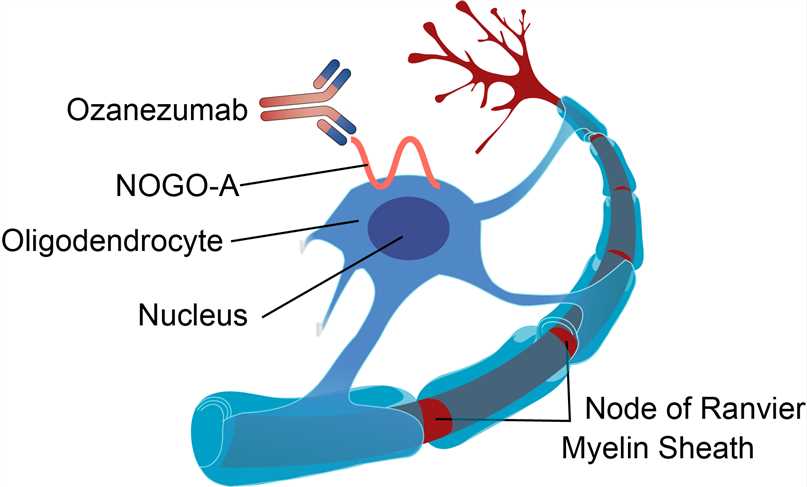Ozanezumab Overview
Introduction of Ozanezumab
Ozanezumab is a monoclonal antibody (mAb) designed for the treatment of amyotrophic lateral sclerosis (ALS) and multiple sclerosis. Ozanezumab targets a protein called Neurite Outgrowth Inhibitor (NOGO-A) or Reticulon 4. NOGO-A is a protein that in humans is encoded by the RTN4 gene that has been identified as an inhibitor of neurite outgrowth specific to the central nervous system. NOGO-A is found at higher than normal levels in persons with motor neurone disease (MND).
Mechanism of Action of Ozanezumab
Nogo-A is a high molecular weight transmembrane protein that was initially identified as a potent myelin-associated inhibitor of axonal growth and regeneration expressed mostly by oligodendrocytes. It stimulates a receptor complex consisting of the Nogo66 receptor NgR1, the adaptor molecule Lingo-1, and effector components p75/Troy, which leads to the intracellular activation of the small GTPase RhoA that mediates actin depolymerization and the collapse or retraction of neurites. Nogo-A is the longest of several splice forms of the Nogo/reticulon (RTN)-4 gene and protein expression is enriched in the brain and spinal cord of rats and humans. Neuronal Nogo-A plays a role in central nervous system development and plasticity and significant time- and region-specific changes in Nogo-A expression are observed during the development of the human brain. Although the exact role of Nogo-A protein in development is not well understood, there is evidence to suggest that Nogo-A is associated with the regulation of neuronal synapse morphology and architecture, possibly via cytoskeletal reorganization, with emerging roles for Nogo-A in the stabilisation of neuronal networks, either developmentally or during the processes of memory consolidation in the mature nervous system. Indeed, Nogo-A may represent an important regulator of neuronal plasticity associated with learning and Nogo-A down regulation is associated with altered synaptic plasticity during aging and may play a role in age-related cognitive decline. There are also reports linking Nogo-A and NgR with schizophrenia. Other research suggests a role for Nogo-A in the neuronal response to hypoxia and oxidative stress and as a negative regulator of central nervous system (CNS) angiogenesis. These findings demonstrate the complexity of the emerging biological functions of Nogo-A protein in the CNS. Ozanezumab specifically binds to the transmembrane protein Nogo-A, which is a myelin-associated neurite outgrowth inhibitor, and thereby neutralizes and/or antagonizes its biological function. Anti-Nogo-A antibodies have been reported to enhance neurite outgrowth in vitro and functional recovery in vivo of neurons in a number of different animal models of human neurodegenerative diseases. It is hypothesized that by neutralizing Nogo-A-mediated inhibition of neurodegeneration, ozanezumab may be a useful therapy for neurological diseases characterized by CNS axonal injury.

Fig.1 Mechanism of action of Ozanezumab
For research use only. Not intended for any clinical use.
This site is protected by reCAPTCHA and the Google Privacy Policy and Terms of Service apply.

